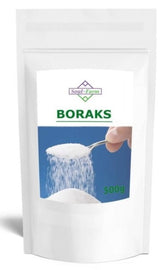The influence of excessive alcohol consumption on the human body
- A few words about alcohol
- What are the consequences of alcohol abuse?
- What other effects can chronic alcohol abuse have?
- What exactly is a hangover and how does ethanol metabolism work in the body?
- Alcohol, exercise and weight loss
- Summary
- Bibliography
It's no secret that too much alcohol is bad for your health. It's true that alcohol itself is simply poison for our bodies. However, it's its abuse that can have negative effects on our system and our well-being. Therefore, we'll attempt to describe both the short-term and long-term effects. We'll also answer the question of what exactly the condition popularly known as a hangover is and dispel some myths about alcohol. We invite you to a fruitful read.
A few words about alcohol
From a chemical point of view, there are many types of individual alcohols. They differ in their physicochemical properties and are used in many industries, including medicine and the food industry. However, this term most often refers to ethanol. It is the most widely used, and this is what we mean when we use the word alcohol. It is right next to toxic methanol, an alcohol with a relatively simple chemical structure. It is an organic compound and is obtained through alcoholic fermentation. Beets and sugarcane, wheat, rye, barley, fruit, corn, and virtually all sugar-containing products can be used as substrates. It should come as no surprise that we can currently boast a wide range of alcoholic beverages, from beer and wine to vodka and whiskey. Let's focus on ethanol itself and its properties. This clear liquid with a pungent taste and odor is flammable. In addition to the food industry, it has also found application in medicine, where it facilitates the maceration process. It consists in obtaining various herbal extracts by incorporating therapeutic substances into ethanol. It is also used as a preservative, as well as a bactericidal and bacteriostatic agent. We find it in many disinfectants, as well as in all kinds of medications and even cough syrups. Its properties have also proven desirable in industry, where it acts as a solvent, is a component of paints, or is actively involved in the production of various building materials.
What are the consequences of alcohol abuse?
Ethanol can be classified as a psychoactive substance, more specifically a sedative. According to statistics, it is the most widely used and therefore the most frequently chosen intoxicant. However, its effect on the body depends primarily on the dose, our psychophysical state, and other individual factors. The lethal dose ranges from 150 to 250 grams of pure ethanol, but it's worth noting that these amounts can vary greatly. In any case, we do not recommend experimenting with the amount of alcohol consumed, as this can end tragically. Ethanol has a tremendous impact on the entire body, but it has a particularly strong effect on the functioning of the central nervous system. Ultimately, it disrupts the communication pathways in the brain itself, has a tremendous impact on our mood and well-being, sometimes putting us in a state of euphoria, relaxing us, and significantly increasing our heart rate. Let's add that we are only talking about the effects of consuming a small amount of it. Of course, these are not as dangerous to our health as those resulting from consuming larger amounts. Consuming large amounts of ethanol over a long period of time is especially dangerous. Regularity is key here. In this case, our body doesn't really have time to regenerate and is constantly busy removing harmful metabolic products that appear in the body after consumption.
What other effects can chronic alcohol abuse have?
Ethanol is absorbed from the digestive tract after a relatively short time. This occurs after about 10 minutes, but after 15, up to 50% of the consumed alcohol is absorbed. Large doses ingested in a short period of time can lead to speech slurs, concentration problems, visual disturbances, or even loss of consciousness. The organ that is the first line of defense against its harmful effects is the liver. This makes it most vulnerable to far-reaching complications. The most common are undoubtedly hepatitis, its steatosis and fibrosis, and even cirrhosis of this organ can occur. It is noteworthy that ethanol can specifically affect the pancreas. It induces the production of many toxic substances that, for example, affect our cardiovascular system. They can also lead to vascular edema, cardiac arrhythmias, and various diseases, as well as significantly increase blood pressure. In addition to all this, there are, of course, sociological and social aspects. Excessive ethanol consumption, almost always long-term, can lead to addiction. Such a person is thus, to a certain extent, excluded from social life. The only thing that matters is to satisfy the craving for alcohol—to reach for another shot. Very often, their loved ones also suffer from this and often try to help wherever possible. Furthermore, all addictions have the potential to trigger aggressive behavior and other severe nervous disorders. This complicates any intervention to help such a person. Very often, a man who had a good job, a loving family, and many diverse interests and hobbies gradually abandons them in favor of alcohol consumption. Such a scenario is, of course, a process that can sometimes take years, but it has not only health consequences, but also sociological and social consequences.
What exactly is a hangover and how does ethanol metabolism work in the body?
Only a small percentage of ingested ethanol is excreted in the urine. The remainder is almost entirely metabolized in the liver. Ethanol itself causes numerous dysfunctions of virtually the entire body, and the intensity of such disturbances naturally depends on the amount of the substance consumed. Since ethanol is toxic to us, the entire body, especially the liver, strives to neutralize it. Through numerous processes and transformations, acetaldehyde is formed, which is the basic chemical compound for the conversion of this alcohol. This aldehyde then enters the bloodstream and, along with the blood, returns to the site of production—the liver. Unfortunately, this compound is still harmful to the body. Therefore, it undergoes further chemical transformations that lead to the formation of acetic acid, which is then converted into carbon dioxide and water. In this form, ethanol is finally excreted. This is obviously due to the fact that these two substances are practically non-toxic to the body. It is worth noting that this process is not that fast. It's estimated that it takes about an hour to break down about 20 milliliters of pure ethanol. This means that half a liter of the popular vodka is excreted in at least 24 hours. That's really long. Furthermore, our liver has a limited ability to metabolize alcohol, so if we consume too much, it enters the bloodstream, which amounts to alcohol poisoning. It circulates through the body until it can be metabolized by the liver. Let's add that if we consume more alcohol at this time, we only complicate and prolong this process. Acetaldehyde and the acetic acid it subsequently forms are discovered to be responsible for hangover symptoms. Their high concentration in the blood is one of the direct causes of malaise, but interestingly, it's not the only one. The type of alcohol consumed is very important, but the more chemical compounds there are after ethanol itself, the more we will experience this condition. For example, if we consider only the amount of pure ethanol in the drink, pure vodka theoretically causes a much less severe hangover than, say, champagne or sweet wine. Furthermore, the intensity of this condition is influenced by many other chemical compounds. For example, lactic acid can acidify the body and thus intensify this effect. Hydration also has a major impact, although this is very small when excessive amounts of ethanol are consumed. This is because alcohol impairs kidney function, causing us to excrete increased amounts of water. Furthermore, the kidneys have problems with glomerular filtration, so not only does rapid dehydration occur, but substances that we wouldn't normally see there also end up in the urine. These include vitamins, minerals, glucose, and proteins.
Alcohol, exercise and weight loss
Alcohol, exercise, and weight loss definitely don't mix. After all, it can lead to overweight and obesity, but also negatively impact fitness or muscle strength—and thus impact athletic results. Just one gram of pure ethanol contains 7 kilocalories. This is almost the same as 1 gram of fat and almost twice as much as the same amount of protein and carbohydrates. Also note that these are empty calories. This term means that it is energy that is of no use to the body, but can be stored, for example, in the form of abdominal fat. Interestingly, the body tends to metabolize alcohol first, causing the metabolism of other energy compounds to drop dramatically. This further enhances the effect of energy storage in the form of adipose tissue. Let's add that many alcoholic beverages contain more than just ethanol. A very common addition to all types of spirits is simply sugar. They have additional nutritional value, but can help slow ethanol metabolism and intensify the effects of the popular hangover. Add to all this snacks, which are usually eaten as supplements, and the result is a powerful energy boost that can not only slow down weight loss but even increase it. In fact, these same factors can negate the effects of various workouts. Ethanol also affects the rate of muscle recovery and the overall body after exercise, making it less effective and can significantly impair muscle mass growth. During prolonged exercise, proper hydration is essential, unlike alcohol, which has a dehydrating effect. Added to this are the effects on the nervous system and psychological aspects. After consumption, it's much easier to abandon training goals and indulge in unhealthy snacks, sweets, and so on. Furthermore, excessive ethanol consumption certainly negatively impacts sleep quality. The idea that alcohol facilitates falling asleep and improves its quality is a myth. It's true that its relaxing effect can facilitate and accelerate sleep, but the quality of this rest leaves much to be desired. All these factors make it a bad idea not only when losing weight or practicing various sports, but also in everyday life.
Summary
Alcohol, or more specifically ethanol, is by far the most popular recreational drug in the world. It has a tremendous impact on our bodies, both physically and psychologically. Consuming small amounts from time to time certainly won't harm our health. The problem, however, is excessive consumption, especially if done very regularly. This will certainly have a profound impact on our lives—negatively, of course. We will certainly feel the effects, and in the long run, it can lead to various illnesses that are often very dangerous to our health and life. Therefore, it's not worth consuming too much ethanol, which is what we and you wish for.
Bibliography
- Ethanol (No. 46139) - Product Safety Data Sheet Sigma-Aldrich (Merck KGaA) for the territory of Poland. [Accessed on June 28, 2019]
- Ferreira, MT. de Mello, S. Pompeia, ML. de Souza-Formigoni. Effects of energy drink consumption on alcohol intoxication . Alcohol Clinical Exp. Ed. 30 (4), pp. 598-605, 2006. DOI: 10.1111/j.1530-0277.2006.00070.x. PMID: 16573577.
- Association of habitual alcohol consumption with cardiovascular disease risk, JAMA Netw Open. 2022;5(3):e223849. doi:10.1001/jamanetworkopen.2022.3849
- http://www.ncbi.nlm.nih.gov/pubmed/8116538
- Rachdaoui N., Sarkar DK: Effects of alcohol on the endocrine system. Endocrinol Metab Klin Nord am. September 2013; 42(3): 593–615.
- Balhara YPS, Deb KS: Influence of alcohol use on endothelial function . Indian J Endocrinol Metab. 2013 July-August; 17(4): 580–587.
THE PUBLISHER'S CHOICE
Almonds 1 kg BIOGO
- £11.00
£13.00- £11.00
- Unit price
- / per
Walnuts 800 g BIOGO
- £8.00
£10.00- £8.00
- Unit price
- / per
Dried organic mango 400 g BIOGO
- £10.00
- £10.00
- Unit price
- / per
Dried White Mulberries 500 g ORGANIC
- £6.00
£7.00- £6.00
- Unit price
- / per
Dried organic figs 800 g BIOGO
- £27.00
- £27.00
- Unit price
- / per
Organic cashew nuts 1 kg BIOGO
- £18.00
- £18.00
- Unit price
- / per
Milk thistle seeds 1 kg BIOGO
- £4.00
- £4.00
- Unit price
- / per
Unpeeled buckwheat groats 1 kg BIOGO
- £3.00
£3.00- £3.00
- Unit price
- / per
Organic coconut flakes 500 g BIOGO
- £9.00
- £9.00
- Unit price
- / per
Organic oat flakes 600 g BIOGO
- £4.00
- £4.00
- Unit price
- / per









































































































































